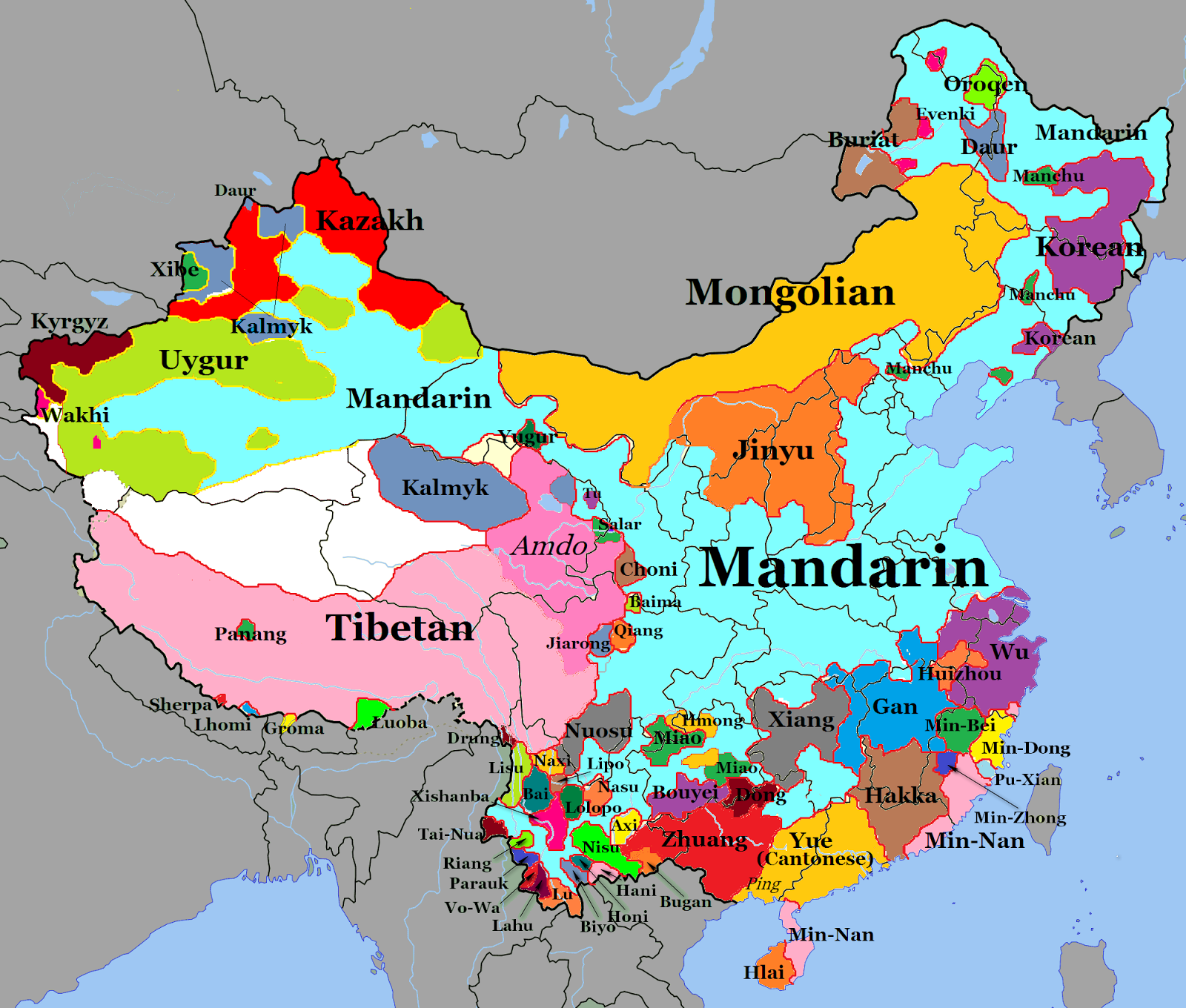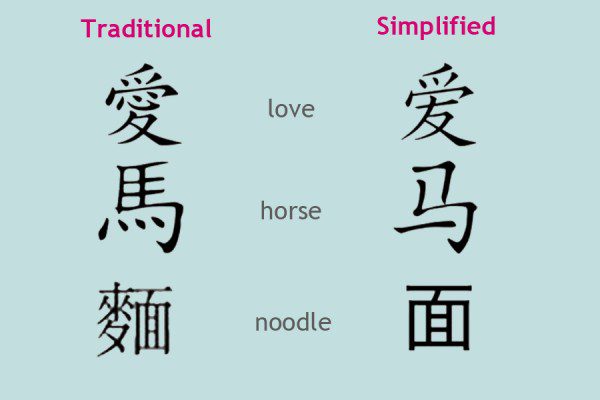On our recent San Francisco trip some PLAers and I went to Chinatown for dinner, where the topic of me being able to speak Chinese was brought up. I realized that it must’ve been confusing for non-Chinese people to understand that though I am fluent in Mandarin, I couldn’t communicate with the Chinese waitress. With this experience in mind, I wanted to share a bit about the cultural diversity surrounding what constitutes the Chinese language.
To preface, by no means am I a Chinese language expert and there are far more languages spoken in East Asia and its surroundings. To give you some idea, here’s a map that demonstrates just how diverse languages are in the area:

One of the most common language-related questions I get is what the difference between Mandarin and Chinese is. If we were to get technical, the term “Mandarin” comes from Jesuit missionaries who came to China in the 16th century and coined the term after the Chinese phrase Guānhuà (官话/官話) or ‘language of the officials’. Practically speaking, people generally refer to Mandarin as a dialect or subset of the Chinese language. Mandarin Chinese is spoken primarily in mainland China and Taiwan.
The other major dialect is Cantonese, which is largely spoken by people living in Hong Kong, Macau, and GuangZhou (Southern province in China). As someone who speaks Mandarin Chinese, I cannot understand Cantonese, though some words or phrases sound familiar. But despite sounding vastly different (at least to my ears), the written language is from the same system.
If you are still following along, I’m now going to briefly delve into the writing system used by these countries, which does not match how the language is categorized. When just looking at writing, people from mainland China use the simplified system whereas people from Taiwan, Hong Kong, and Macau use traditional. It’s like comparing cursive and non-cursive English writing to traditional and simplified Chinese. The difference is best explained by just looking at this picture:

To add onto the varying languages and writing systems, there are many dialects/accents and completely different languages that are based on the rich history in the region involving hundreds of different ethnic groups and cultures. Afterall, as some of the oldest civilizations and societies in the world, it is no surprise how beautifully diverse the Chinese language and culture is.
I think it’s funny because oftentimes people will assume all Chinese people speak Mandarin (which to be very honest is a reasonable assumption because majority of us do), but in cases like in the Chinatown restaurant, the only thing allowing me and the Cantonese-speaking waitress to understand each other were awkward hand gestures and her limited English-speaking skills.

Hi Mabel!
Thank you for sharing your experience and knowledge of the Chinese language. I find it wildly interesting that there is so much linguistic diversity within a country and the other regions surrounding it. Because I have the most experience with English and Spanish, I tried to put your perspective into my experiences with language. Within the United States, while character/letters are not different, there are many regional dialect differences. Just within Pennsylvania there are at least five district dialects (Philadelphia, Pittsburgh, PA Dutch etc…)
I loved reading your post and gained some insight on language. Thank you!